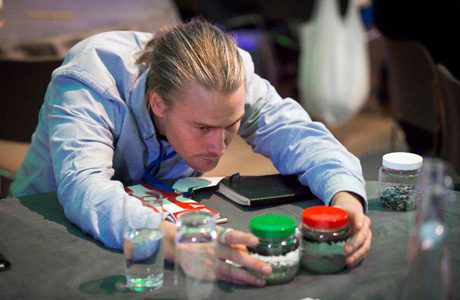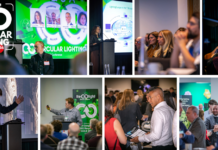
The Plasticity Forum was held on 21 September as part of the London Design Festival to help bring the design community into the big discussion on the future of plastic sustainability. The goal was to give them the tools and know-how to become part of the solution in reducing plastics waste. Designers are one of the missing links to solving some of the complex solutions related to materials, designing for recycling, and societal process flow in terms of resource recovery. Those who know the issues will be better able to drive expansion of the Corporate Social Responsibility (CSR) and UN Sustainable Development Goals (SDGs) that the brands and clients they work for should be striving to meet.
Plastics pollution may be one of the biggest looming challenges of our time, but it also offers one of the exciting opportunities when it comes to creating new design solutions that can be scaled across industries. France’s recent announcement to ban all disposable plastic plates, cups and cutlery – the first country to do so – is evidence of the recognition of the ills that plastic pollution creates.
The Plasticity Forum in London included a unique range of global expert speakers on the topic of plastic sustainability, with challenges and opportunities that included the manufacturing needs for an innovative single-material shampoo bottle, the use of calcium carbonate from large volumes of egg shells as a filler for any types of polymers which can benefit from its inclusion. Guilio Bonazzi, chairman and CEO of Italy’s Aquafil Group, spoke about his firm’s unique fiber recycling capacities from carpet tiles and used fishing nets. Aquafil has a growing program with carpet maker Interface, which sources fishing nets from local communities in the Philippines and Cameron. Mr. Bonazzi, and Miriam Turner from Interface said that “over 100 tons of nets have been collected, with over 55,000 families impacted by a cleaner environment, and over 600 families now having access to micro finance as a result of the Net-Works program.”
Marilu Valente presented her unique, award-winning prototype design for a mono-material shampoo bottle that dispenses with the separate cap by creating a self-plugging dispensing hole. This allows for better standardization of material use, making it easier to recycle. “I am also looking for manufacturing companies and retailers to work with to distribute this innovative product, which is designed for recycling and reuse,” she said.
Other speakers included Chris Grantham, Circular Economy Portfolio Director – IDEO, Quentin Drewell, UK Circular Economy Lead – Accenture, Willem De Vos, CEO – Society of Plastics Engineers, Simon Widmer, Project Manager of Circular Design – Ellen MacArthur Foundation, David Wilson, Director – Vanden Recycling, and Pankaj Pancholi, President – Just Egg.
This was the sixth international Plasticity Forum, having been held a new city each year so that more businesses, government officials and members of each community can learn about the logjams and dynamics of creating larger scaled new materials, recycled content, and process flows to reduce waste and create value.
“Plastic is a material that will be with us for years to come, both because it is so useful, and because it does not easily go away. Plasticity offers a venue for collaborations and knowledge sharing to happen across sectors which often is what creates big impacts and results. The design community is a critical component of the path forward to reduced waste, and we look forward to hosting more events with the design community involved,” says Doug Woodring, Plasticity’s founder. It is estimated that less than 15% of all plastic every produced actually gets recycled today.







